Meet the new Cloud Unicorn from Israel: Melio raises $110m to transform B2B payments
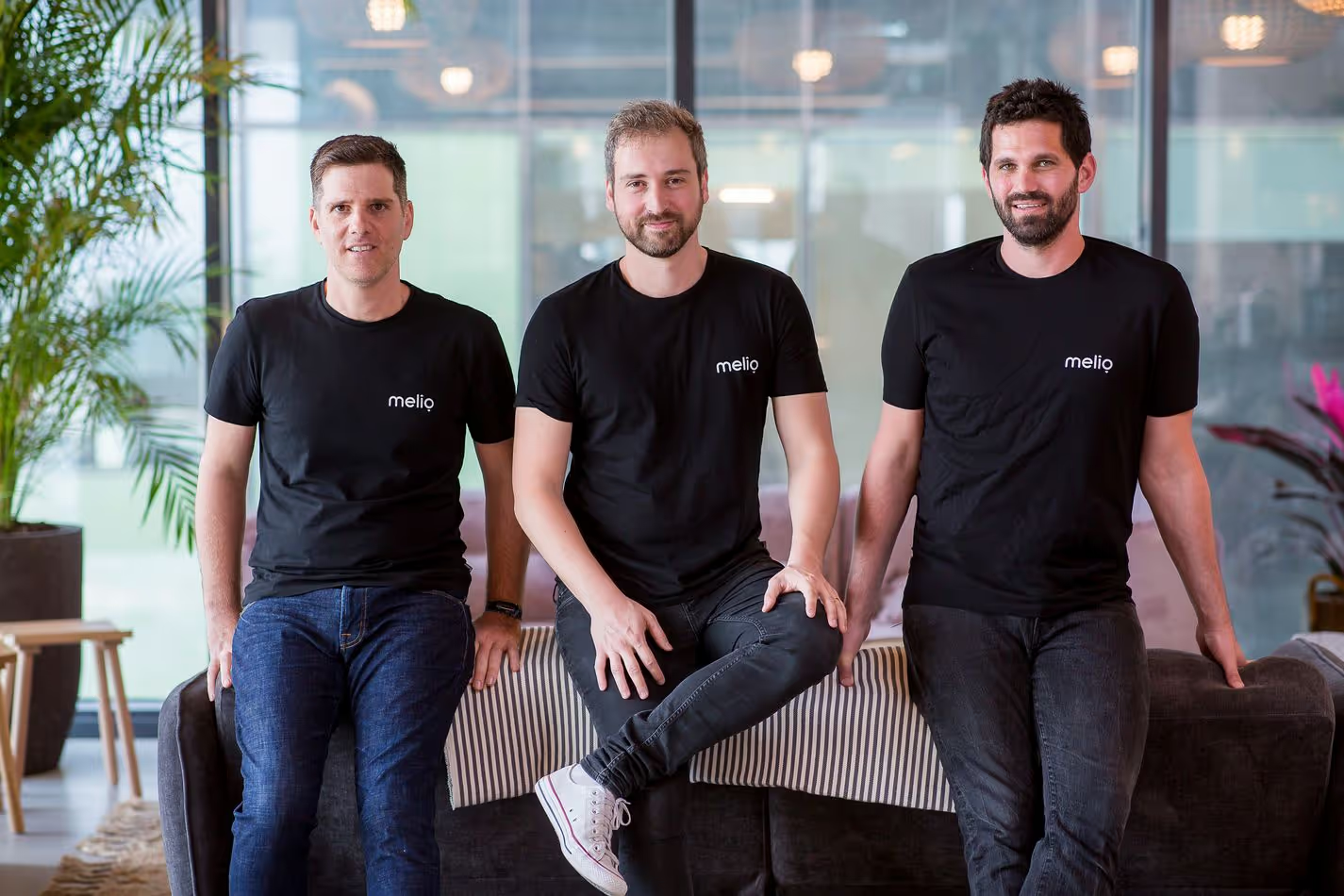
The first time I met Matan, the founder of Melio, he told me that his mission was simple: he wanted to “help small businesses stay in business” by making B2B payments fast, simple and flexible. Coming from PayPal, Matan saw no reason why small businesses couldn’t pay their bills as easily as consumers send money on Venmo - in just two clicks. And he and his co-founders Ziv and Ilan made it happen: Melio’s now processing multi-billion dollar payment volumes less than two years after launch.
On the back of this momentum, Melio today announced a $110m funding round, rocketing the company to a valuation of $1.3b just months after it came out of stealth. When Accel led Melio’s series B last year, we had high expectations for the company and its vision but didn’t imagine it would become one of Israel’s cloud unicorns in such a short space of time.
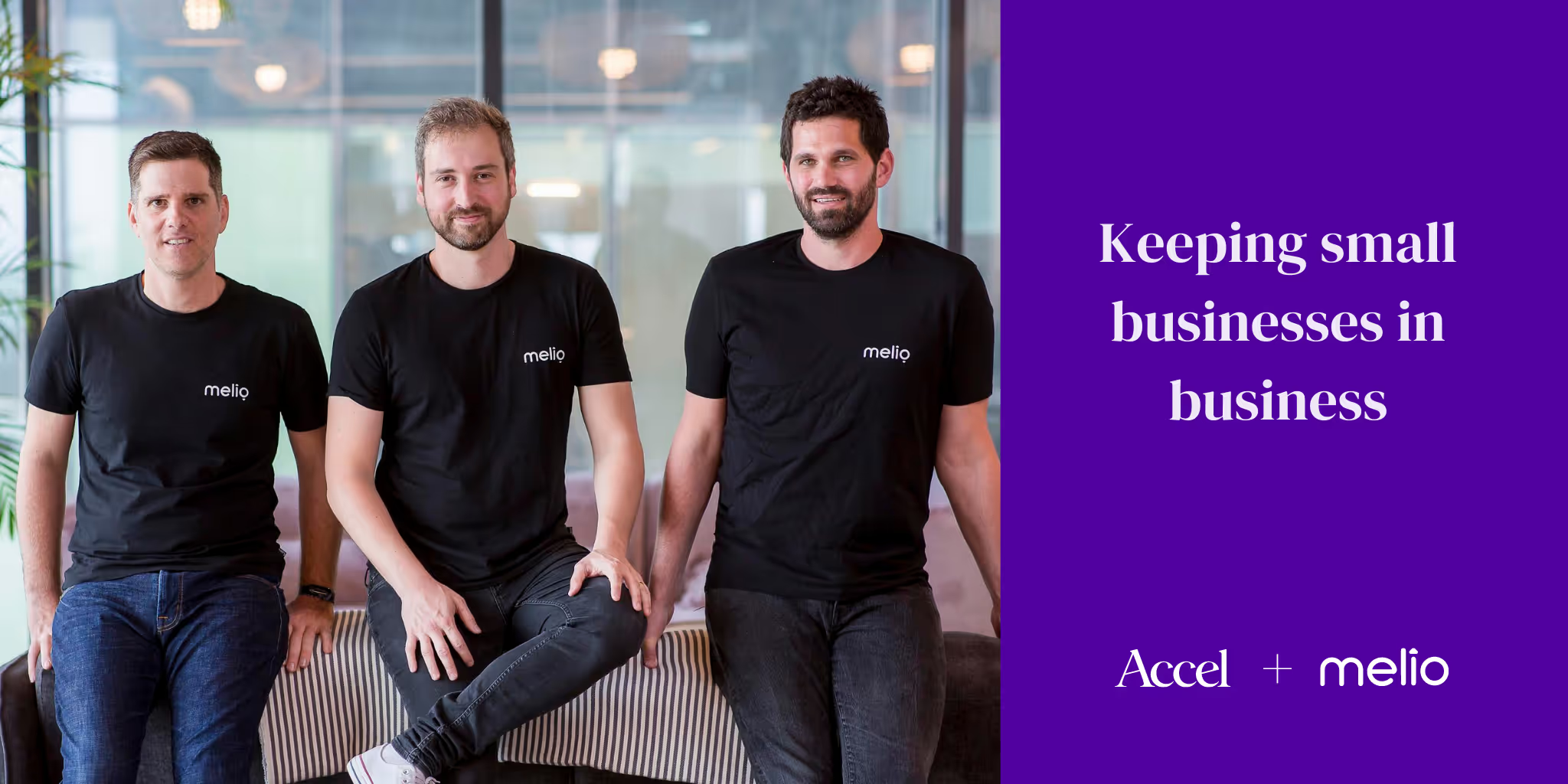
Bringing the consumer payment experience to small businesses
When you think of the B2B payments industry, words such as “simplicity”, “flexibility”, “speed’ and “efficiency” are likely far from mind. It’s an industry that’s long been in need of digitisation and many businesses still find themselves wading through piles of paper invoices, manual processes and managing heterogeneous payment cycles. More than 40% of B2B transactions in the US, which is roughly a $25 trillion market, are still made with paper checks compared to 5-7% for consumers. We think this gap will reduce dramatically in the next few years.
For small businesses, the pain is even more acute as - on top of the inefficiencies of traditional payment processes - their survival could be at stake. Managing the timing of payments is critical and can have dire consequences. For example, if you’re a wine retailer in New York, missing a payment to your supplier by just one day means that your next shipment will have to be paid on delivery, putting a huge strain on your cash flows. With typically no in-house accounting and finance teams, and traditional accounts payable (AP) automation solutions like Bill.com not meeting their flexibility and cash flow control needs, small businesses are still writing and posting checks to pay suppliers. A process exacerbated by the coronavirus pandemic. Living in a socially distanced world puts the ability to manage payments remotely and digitally, as well as greater cash flow control, in the spotlight. From March to August 2020, Melio saw payments volumes increase by 700% as US small businesses rushed to find a solution to pay their suppliers online.
With Melio, small businesses can now pay their bills for free using a bank transfer or debit cards, payment approval workflows can be easily set up and due dates managed - all via one cloud platform.
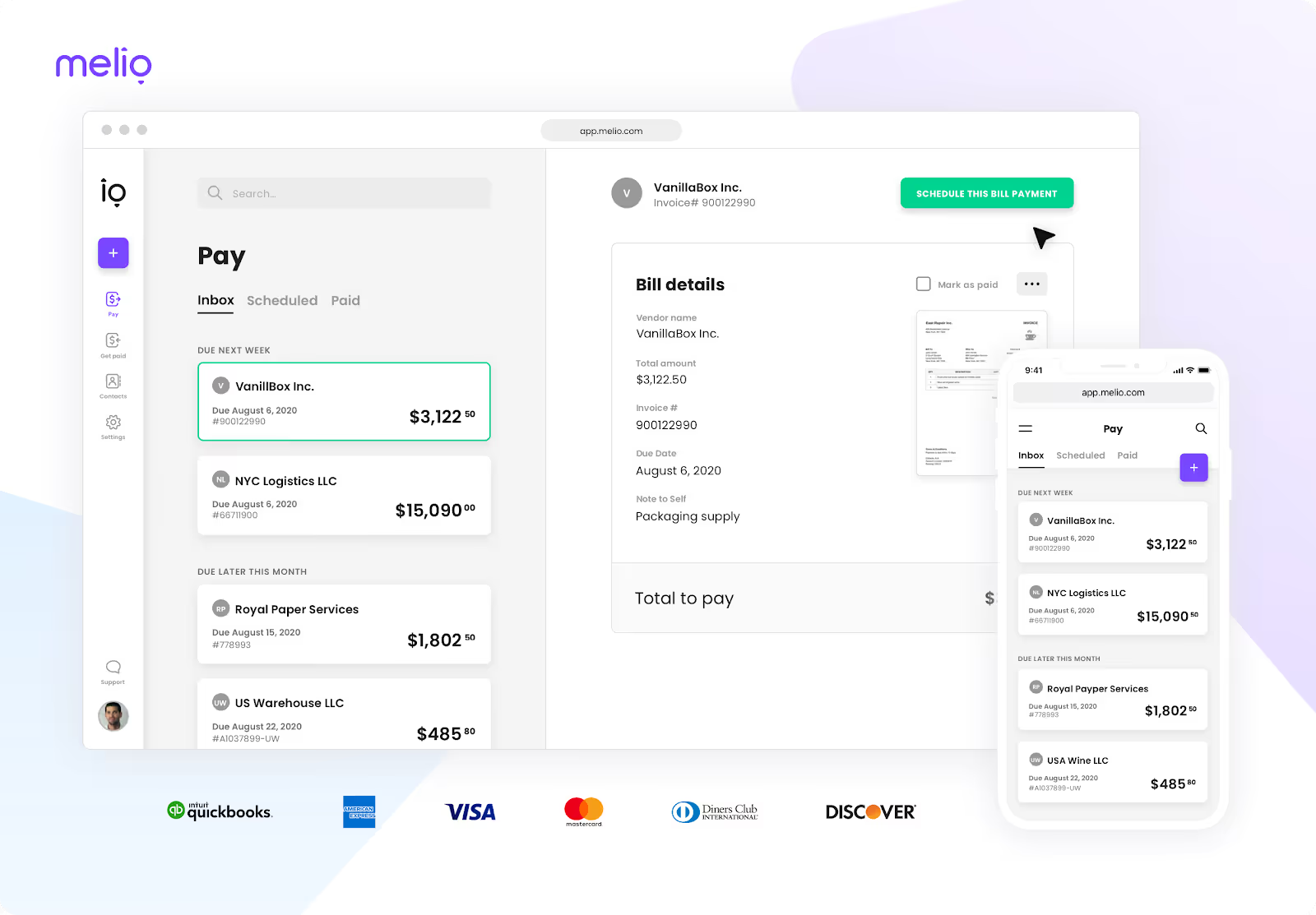
Leveraging consumer P2P and design principles (Matan previously led Consumer P2P Payments at PayPal), the Melio team has given small businesses an easy-to-use app that places cash flow control back in their hands. Now processing multi-billion dollar payment volumes, Melio’s monthly active users (MAU) grew by more than 2,000% in 2020 as more US small businesses made the leap to digital payments. The company also secured a partnership with Intuit Quickbooks to provide its bill payments capabilities inside its flagship accounting solution, making it even easier for small businesses to schedule and send payments.
Fintech stack shifting to the cloud
From the outset, Melio’s broader platform vision of enabling B2B payments in a contextual way has been key. Building a ubiquitous platform that enables B2B payments at the right time and place, integrating with other suppliers’ offerings, improves the customer experience, extends Melio’s reach and fuels the rise of adoption within vertical SaaS products. The integration of Melio by Vinosmith is a good example.
Melio is the poster child of one of the key trends highlighted in the Accel 2020 Euroscape: the fintech stack shifting to the cloud. In the past, the complexity of monolithic banking and payment infrastructure made it difficult for non-financial institutions to develop financial services. Today, modern API-first platforms make it possible for many cloud companies to integrate payments and banking services. We expect this trend to disrupt banks and insurance, and give rise to a new generation of fintech infrastructure companies. Melio is at the forefront of this digital transformation.
Primetime for Israel’s Cloud ecosystem
Melio’s meteoric journey is one more proof point that the Israeli Cloud ecosystem is at its prime. Israel produced three public cloud companies - Wix, Jfrog and Varonis - representing an aggregated market cap of more than $25b, c. 25% of the value of the 10 public cloud companies born in Europe and Israel. And the good news is that the next generation is growing fast: the Accel 2020 Euroscape, which analysed data from 1 January - 30 September 2020, revealed the number of Israeli cloud unicorns tripled vs. 2019, accounting for more than a third of unicorns created across Europe and Israel. These unicorns include Snyk, RedisLab, Monday.com, Gong, Sisense, WalkMe, AppsFlyer and SentinelOne.
The amount of money poured into the Israeli Cloud ecosystem also increased 60% over 2019 reaching $3.4B over 190 rounds. This number represents c. 35% of the combined European and Israeli Cloud market for the first nine months of 2020. Not bad for one country!
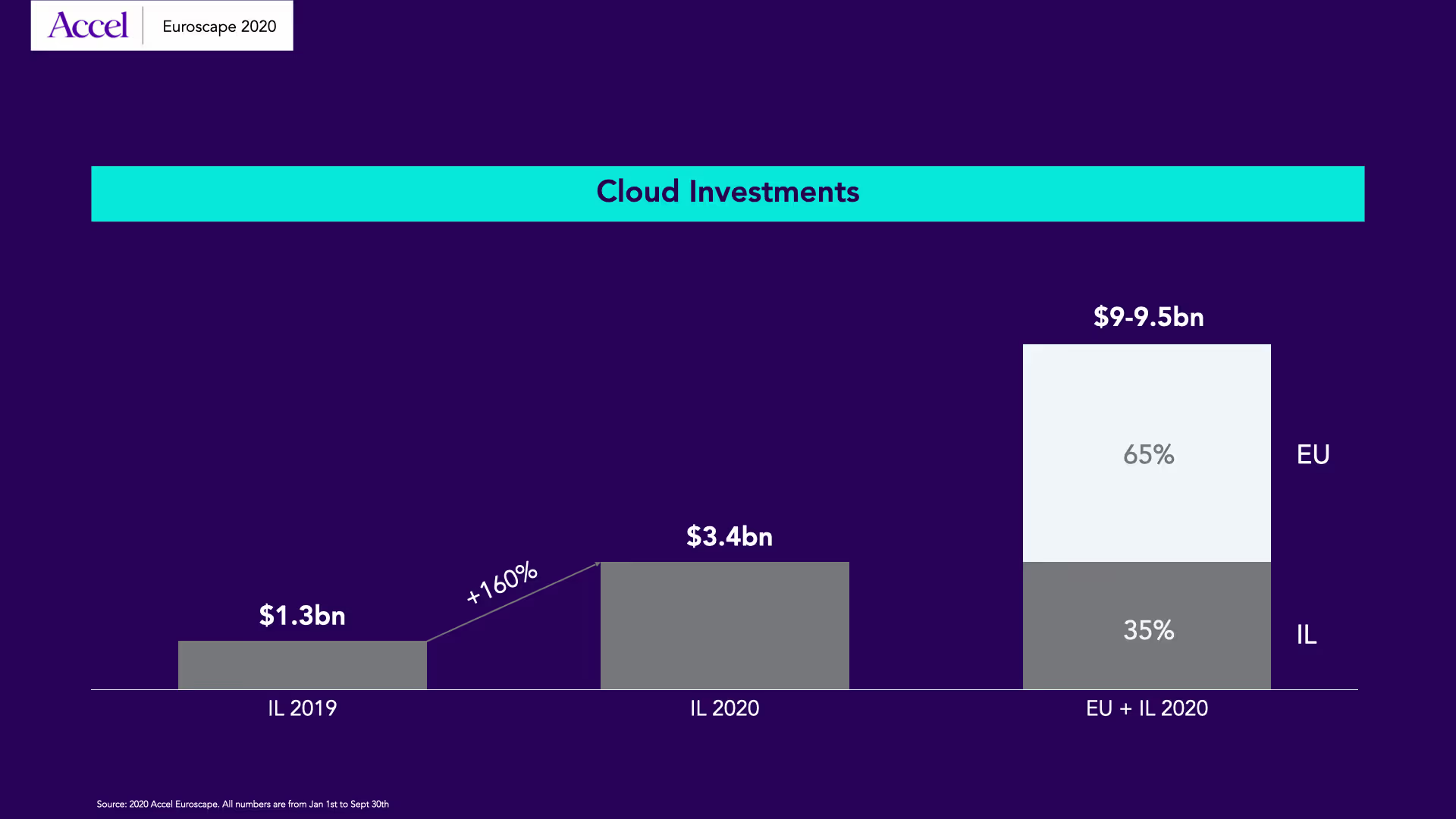
Israeli cloud companies also tend to raise larger rounds at the earlier stages and 2020 was no exception. With an average deal size of $17.5m, Israeli cloud financing rounds were 46% larger than their European counterparts (average of $12m in 2020). The number of rounds over $10m was also twice as big in Israel as it was in Europe.
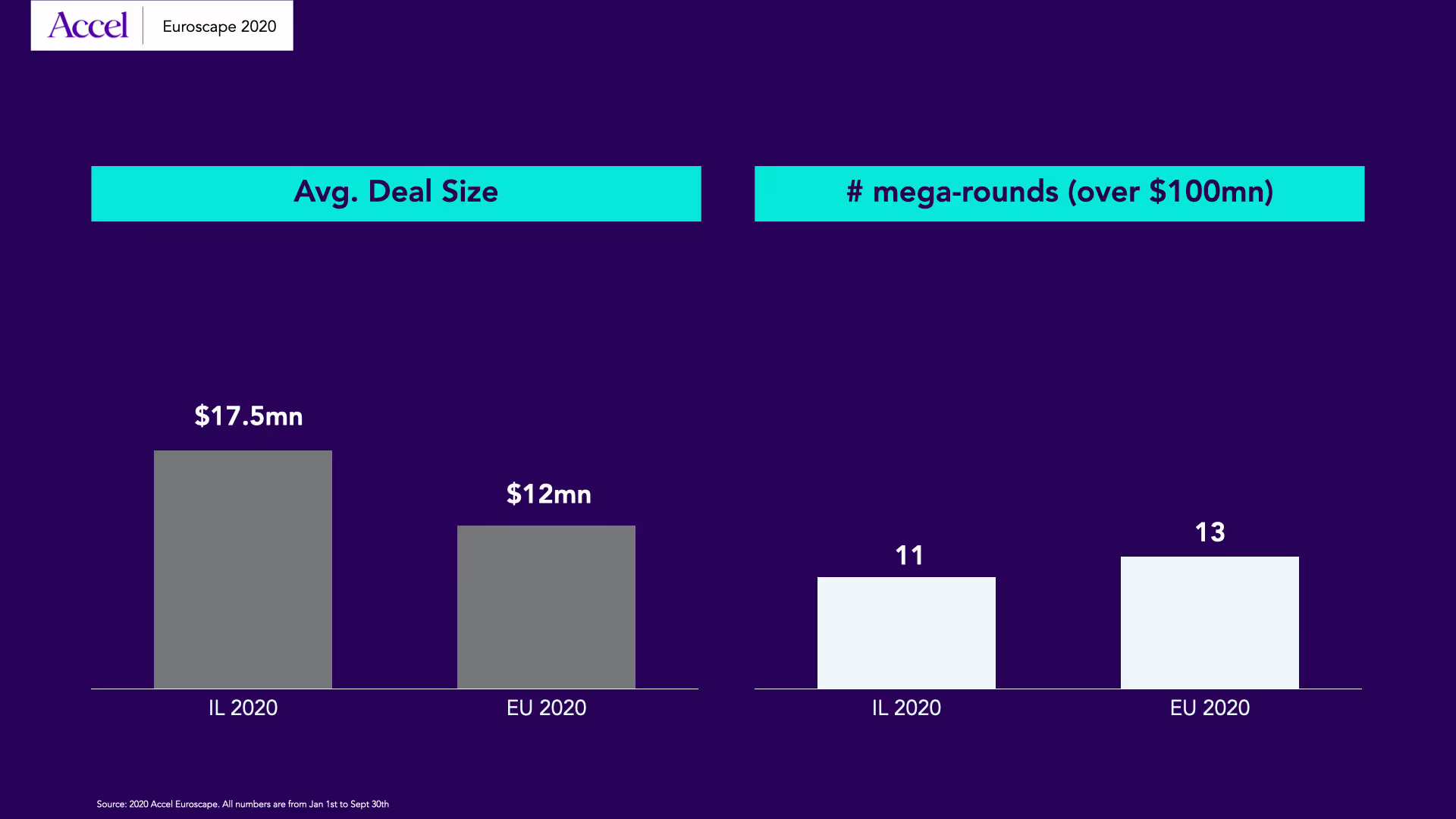
When it comes to mega-rounds (more than $100m), our Euroscape analysis shows that Israel is the clear winner with 11 financings vs. a total of 24 for Europe and Israel combined. A big congrats to these amazing companies (AppsFlyer, Gong, SentinelOne, Snyk, Biocatch, Fabric, Pagaya, RedisLabs, Sisense, Vast) which have raised a combined $1.6b. These 11 mega-rounds compare to three for the same period in 2019. It’s also worth noting that in 2020, four of the 11 rounds - Appsflyer, Gong, SentinelOne and Snyk - were more than $200m!
***********************
The future of the Israeli cloud ecosystem looks increasingly bright and we can’t wait to see what 2021 brings! We couldn’t be more excited by what’s going to come next and feel fortunate to have witnessed the incredible growth of the ecosystem in the past few years. The days where Israel was known only for its cybersecurity entrepreneurs is behind us. Thank you and congratulations to all of the cloud entrepreneurs who have worked hard to make this happen and, in particular, to the Melio team for the fantastic success and for pioneering a new transformative category: “keeping small businesses in business!”
Great companies aren't built alone.
Subscribe for tools, learnings, and updates from the Accel community.



